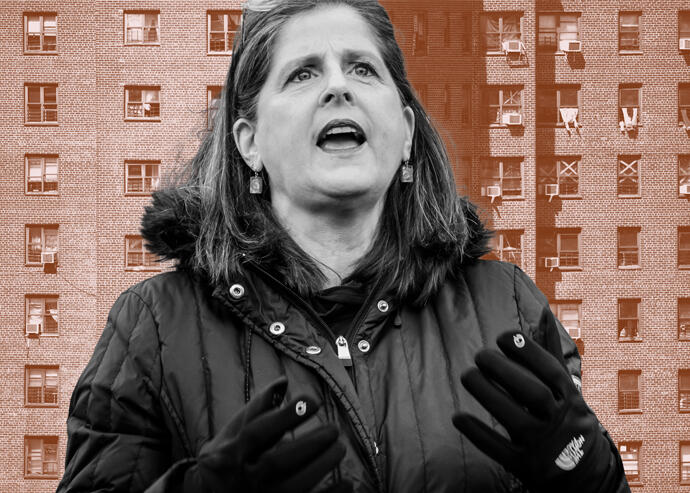
Council Member Helen Rosenthal (Getty)
Two years ago the City Council gave the Housing Authority an assignment: “Make efforts” to slash carbon emissions. Now it is asking the agency to show its work.
The City Council on Thursday passed a bill that requires NYCHA to submit greenhouse gas reports for its 300-plus properties each year. The measure essentially gives teeth to a provision in Local Law 97 of 2019 that vaguely instructs the agency to figure out how to significantly cut its emissions.
The 2019 law asked NYCHA to cut emissions 40 percent by 2030 and 80 percent by 2050, from 2005 levels, but carried no punishment for failure other than making recommendations for what it needs to succeed. About 50,000 private buildings, by contrast, are subject to annual fines that can run into the millions of dollars beginning in 2024.
The new measure gives the city some data to work with. Starting in December 2022, NYCHA will need to report its portfolio’s carbon emissions from the year prior. The report must include emissions from capital projects involving buildings owned or operated by NYCHA. The bill also requires the Mayor’s Office of Long Term Planning and Sustainability to post current and future capital projects intended to cut government’s emissions on its website.
“We have a tremendous responsibility to take action on climate change while we still can, and I am proud that we are doing so today,” Council member Helen Rosenthal, one of the bill’s sponsors, said in a statement. She touted the bill as a step toward forcing the city to comply with the same standards that the private sector must meet as part of Local Law 97.
The real estate industry has lobbied for changes to the law, with little success so far. In November, Mayor Bill de Blasio signed a bill that will require more rent-regulated buildings to comply with Local Law 97.
The measure that passed Thursday adds to the long list of NYCHA’s obligations, including some $40 billion in capital repairs.



